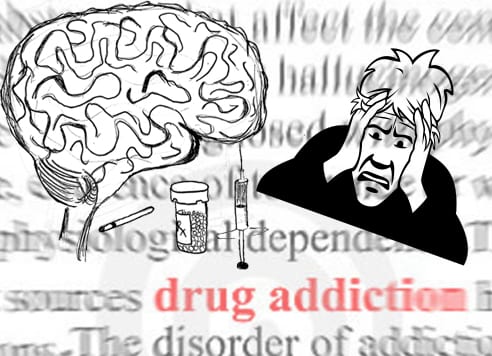
Maia Szalavitz, columnist and contributor to substance.com, believes that the world is approaching drug addiction from the wrong angle. In her article “Most People With Addiction Simply Grow Out of It: Why Is This Widely Denied?” she compares drug addiction to a learning disorder rather than a disease. Szalavitz argues that people tend to cease their drug use during their early- to mid-twenties due to the prefrontal cortex reaching full maturity. The prefrontal cortex is the part of the brain that controls judgment and self-restraint.
I believe Szalavitz is confusing addiction with substance abuse. Both substance abuse and addiction can result in an inability to fulfill social, professional and personal obligations, and both can result in legal problems. There are many similarities between addiction and substance abuse, so the confusion is understandable, but the big difference between the two is that addicts exhibit signs of tolerance, dependence and treatment withdrawal.
One cannot “grow out” of addiction like one can “grow out” of substance abuse. A drug addict’s entire life is consumed with obtaining the substance and with it his or her next high, while a substance abuser may have retained some control over his or her life.
Szalavitz claims that “for people like me, who have used drugs in such high, frequent doses and in such a compulsive fashion … it is hard to argue that we ‘weren’t really addicted.’ I don’t know many non-addicts who shoot up forty times a day, get suspended from college for dealing and spend several months in a methadone program.”
However, she is missing a crucial fact. A substance abuser can shoot up forty times a day and have all the signs and symptoms of an addict, but be missing the dependency aspect. A substance abuser has not yet developed a dependency on the drug, nor has he or she developed a tolerance. But both an abuser and an addict may suffer from interpersonal and social problems as a result of their drug use.
Szalavitz also argues that there is evidence to suggest that children with attention deficit/hyperactivity disorder ADHD eventually “grow out” of their symptoms. But this is simply inaccurate according to the Centers for Disease Control and Prevention Web site. The CDC states that ADHD symptoms can cause difficulty at school, with friends and at work and can last into adulthood.
Szalavitz also views addiction as a learning disorder, but the problem with that perspective is that learning disorders do not cause physical changes in the brain. Addiction is a disease that causes a physical change in the brain chemistry. This change results in the development of tolerance, withdrawal and dependency. Most drugs are one of two types: they work by binding to a site and then either blocking or mimicking a protein’s effects. As a disease, addiction differs from a learning disorder in that learning disorders are largely a result of genetics. However, addiction could be a combination of a genetic predisposition as well as environmental factors.
Another major difference between learning disorders and addiction as a disease is that people with a disease can relapse. People with a learning disorder cannot relapse because there is nothing to relapse from. A relapse is a period of deterioration after a period of improvement. People with a learning disorder must learn how to handle and manage their lives around the disorder. People with a drug addiction have their lives revolve around the drug. After developing dependency and crossing the line that separates substance abuse and being an addict, the next high is all that matters. With a learning disorder, the afflicted person is still in control of themselves while the addict is completely at the mercy of the drug.
Szalavitz’s perspective is an interesting take on drug addiction. Unfortunately, drug addiction is a disease that people cannot simply grow out of. No human can age out of a disease, especially after his or her brain chemistry has been altered. I do not believe addicts can grow out of their addiction – at least not a chemical one.
Devon Brichetto ’18 briche1@stolaf.edu is from Grand Rapids, Mich. Her major is undecided.
Graphic Credit: ETHAN BOOTE/MANITOU MESSENGER

